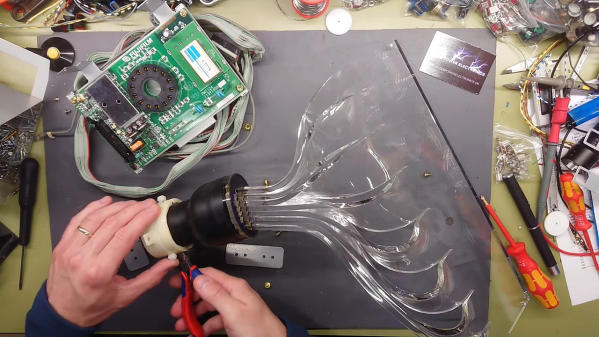Every engineer is going to have a bad day, but only an unlucky few will have a day so bad that it registers on a seismometer.
We’ve always had a morbid fascination with engineering mega-failures, few of which escape our attention. But we’d never heard of the Super-Kamiokande neutrino detector implosion until stumbling upon [Alexander the OK]’s video of the 2001 event. The first half of the video below describes neutrinos in some detail and the engineering problems related to detecting and studying a particle so elusive that it can pass through the entire planet without hitting anything. The Super-Kamiokande detector was built to solve that problem, courtesy of an enormous tank of ultrapure water buried 1,000 meters inside a mountain in Japan and lined with over 10,000 supersized photomultiplier tubes to detect the faint pulses of Chernkov radiation emitted on the rare occasion that a neutrino interacts with a water molecule.
Continue reading “Engineering Lessons From The Super-Kamiokande Neutrino Observatory Failure”












